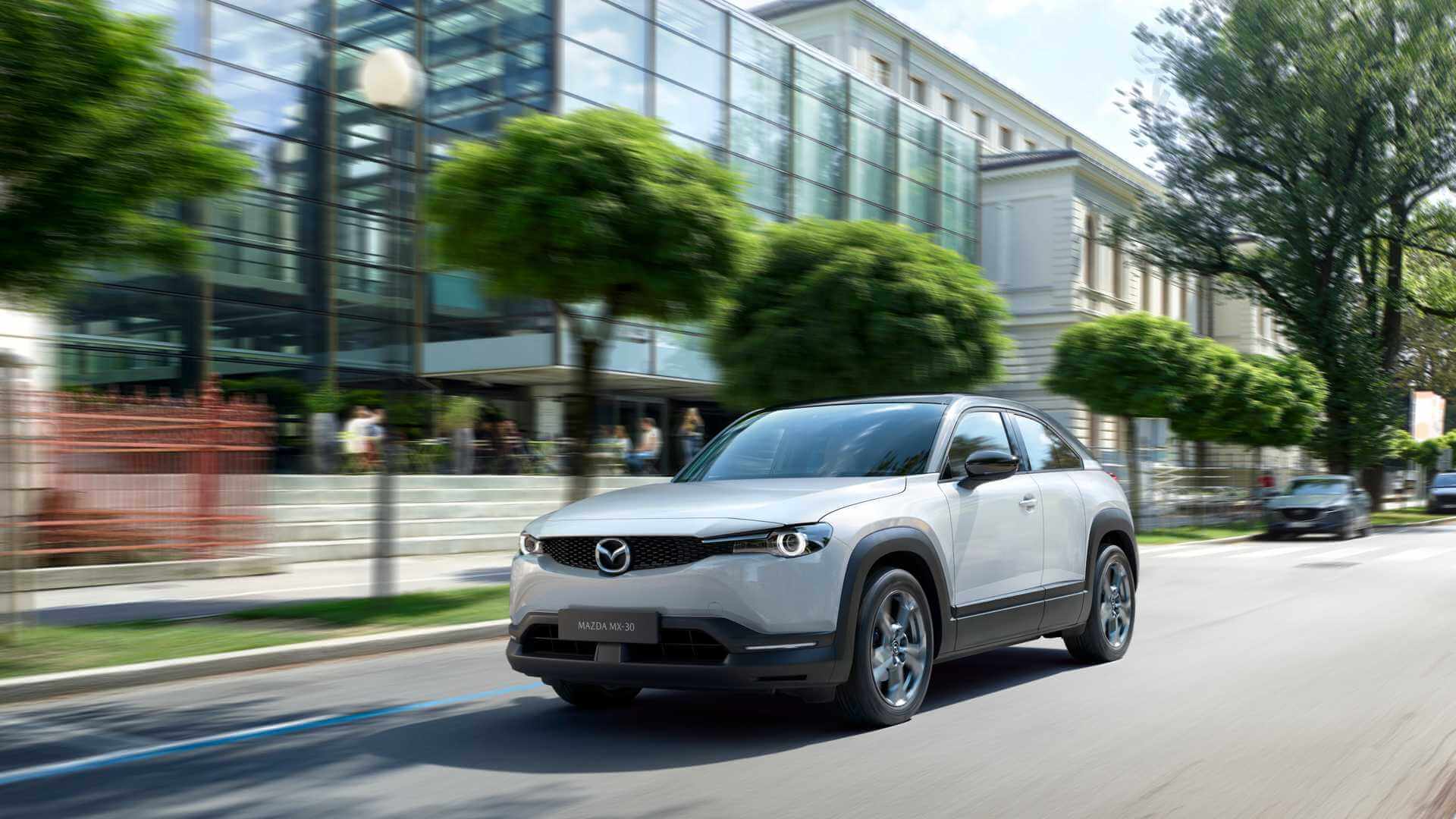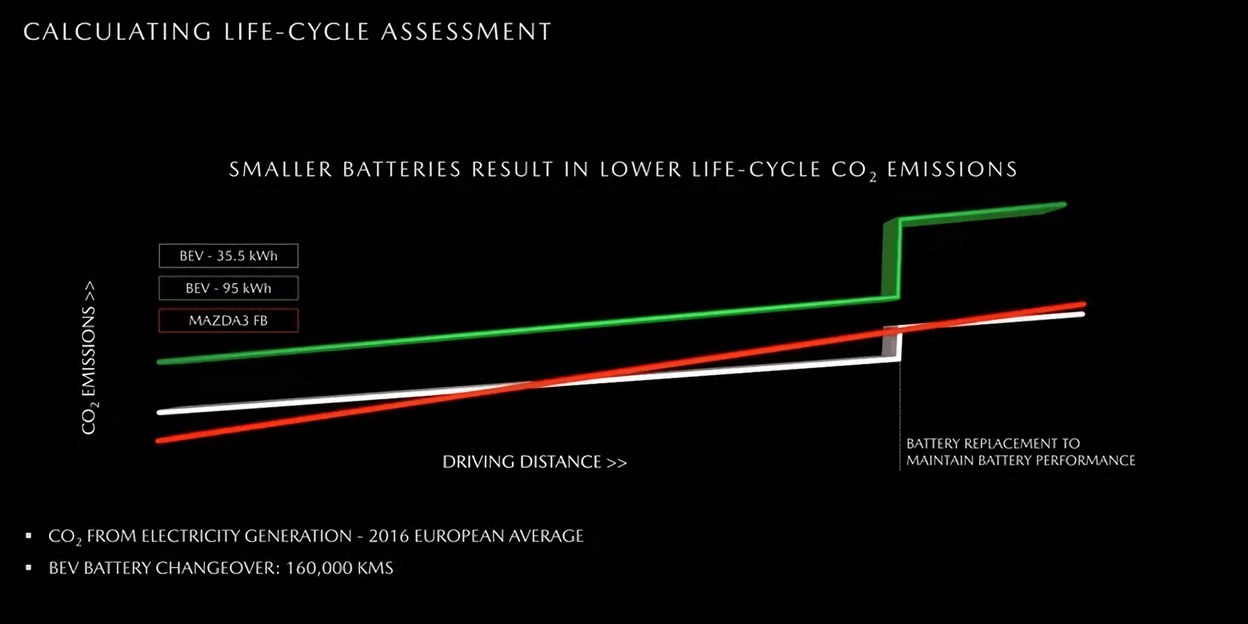A hot potato: It's generally accepted that electric vehicles are better for the environment than their diesel alternatives, but Mazda argues that's not always the case. The company says its MX-30 crossover comes with a 35.5kWh battery because it's "responsibly" sized, meaning the pack's overall CO2 emissions are comparable to a diesel Mazda 3 compact hatchback.
When Mazda unveiled the MX-30 crossover at the Tokyo Motor Show in October, it revealed the EV's 35.5kWh lithium-ion battery. That gives it a range of about 200 km (124 miles)---substantially lower than EVs such as the Tesla Model S and its 100kWh battery, which allows a range of around 600km (373 miles). Even the similarly priced Hyundai Kona EV manages 289km (179 miles) on its 39kWh pack.
Speaking to Automotive News, Mazda's European research director, Christian Schultze, said it chose the battery pack size for environmental reasons. He says its overall CO2 lifetime footprint, which includes manufacturing and energy consumption, is similar to a diesel Mazda compact, and that's even when replacing the battery after 100,000 miles.
Mazda says using a 95kWh battery pack like the one found in the Tesla would mean much higher overall CO2 emissions due to its larger size and greater energy consumption. And the problem would be made worse when the pack needs replacing.
Mazda shared a graph to try and illustrate its point. It says the green line represents a 95kWh EV.
It's worth noting that numerous studies show EVs produce less CO2 emissions over their lifetimes than diesel vehicles, and Mazda based its figures on European electricity generation averages from 2016. For some people, however, the claim of a more environmentally friendly EV could outweigh its low range.
In other Mazda news, the company last week issued a recall for 35,000 fourth-generation Mazda3 vehicles over their faulty emergency brake system.

